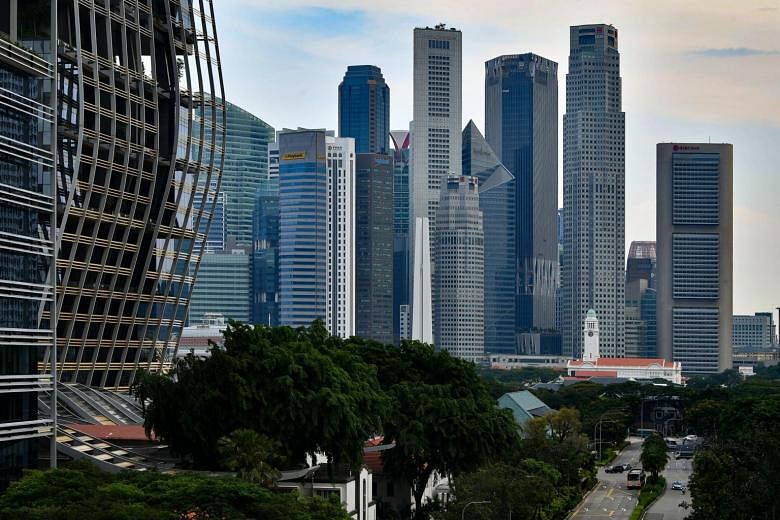SINGAPORE - Over the last two years, an average of around 3,840 firms were deregistered each month - figures similar to the pre-Covid-19 period of 2017 to 2019, said Minister of State for Trade and Industry Low Yen Ling.
But an average of more than 5,000 new firms were registered each month over the last two years, reflecting an increase in the total number of businesses operating in Singapore, she said on Wednesday (Nov 3).
In the retail sector, 8,600 businesses ceased operations from January 2020 to September this year, Minister of State for Trade and Industry Alvin Tan said.
This was 330 more than the same period between 2018 and 2019.
However, 15,570 new retail businesses were set up in the same period, resulting in a net increase of 6,970 firms, Mr Tan said.
Ms Low and Mr Tan shared the figures in Parliament in response to questions from MPs on the number of companies that had closed down because of pressures from the Covid-19 pandemic, in particular those in the tourism-related and retail sectors.
Trade and Industry Minister Gan Kim Yong said in a written reply that in the food and beverage (F&B) industry, 3,440 businesses ceased operations from December 2019 to June 2021 while 5,620 new ones were formed.
Total employment in the F&B sector was lower by about 8 per cent in June 2021 compared with December 2019. But the Government has helped the food service sector through initiatives such as the Jobs Support Scheme (JSS), which provides wage support, Mr Gan noted.
Enterprise Singapore also introduced the Food Delivery Booster Package, which defrays commission and delivery costs, to encourage F&B businesses to tap food delivery services.
On Wednesday, Mr Tan told the House that new entrants to the tourism industry have kept the number of businesses in operation fairly stable, despite some exits since January 2020.
He noted that the number of licensed hotels remains at around 420 despite 13 hotels having ceased operations, while the total number of licensed tour guides is still around 2,900, even with 176 tour guides choosing not to renew their licences during this period.
However, travel agents have been impacted more, with 157, or 8 per cent, of them ceasing operations. Thirty new travel agents have entered the market.
Mr Tan highlighted that government support initiatives such as the JSS and SingapoRediscovers vouchers (SRV) have helped cushion the impact of Covid-19 on the travel and tourism sector.
The SRV scheme has helped to stimulate demand by encouraging Singaporeans to rediscover the city and support local tourism businesses, he said.
The scheme has also helped tour guides. Between its launch in July 2020 and the start of the heightened alert period in May this year, monthly tour participants grew five times from just over 10,000 to more than 50,000.
Addressing questions from Mr Saktiandi Supaat (Bishan-Toa Payoh GRC) on tour guides or retail front-line workers who have had to switch industries or jobs permanently, Mr Tan said 4,373 workers were retrenched across the core tourism industries between January 2020 and Oct 20 this year.
Of these, 58 per cent were locals. However, with early intervention and support under the SGUnited Jobs and Skills initiative, 67 per cent of the locals retrenched between January and September 2020 found new jobs within six months, he noted.
Additionally, close to 250 tour guides have served as safe distancing ambassadors with the Singapore Tourism Board (STB).
Highlighting the SRV scheme and STB's waiver of tour guide licence fees in 2020 and 2021, as well as test fees for those who wish to be licensed in another language, Mr Tan said: "All of this in concert and all of this in totality is helping to preserve our capability in our tourism sector... while we await the recovery in global travel as well as the tourism industry."
Separately, in 2020, 1,180 retail employees were retrenched, Mr Tan said. This translates to 16.9 retrenched employees per 1000 employees.
Of these, 56 per cent were able to enter a different industry within six months after retrenchment.
Mr Tan said Enterprise Singapore's retail industry transformation map has identified key trends in the retail industry that will help the sector's recovery.
These include digitalisation, on-demand retail, hyper-personalisation of goods and conscious consumerism, which is related to sustainability.
"We are supporting our retail sector to take on and to ride these trends," he said.


